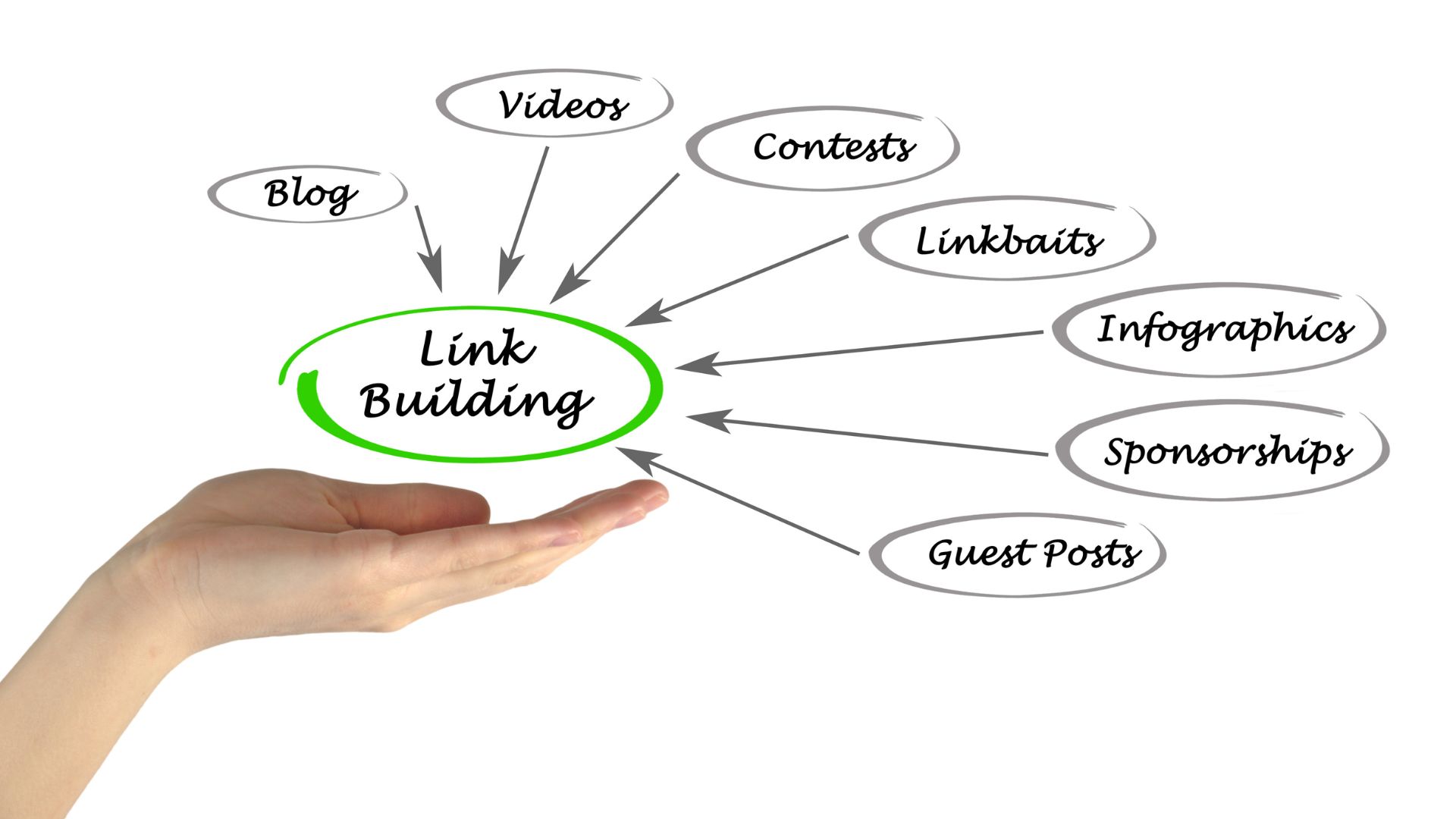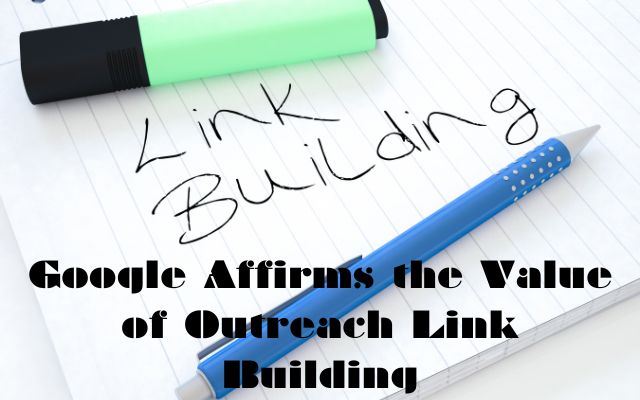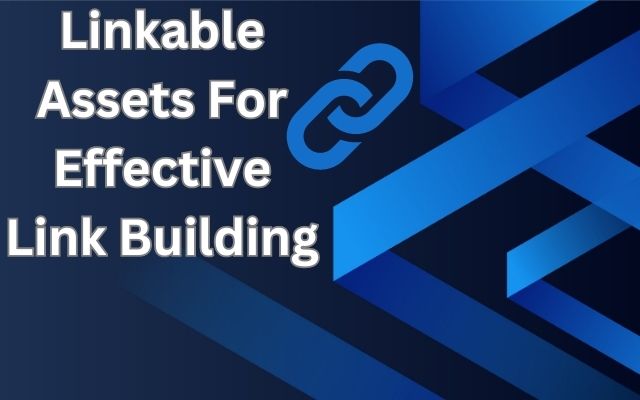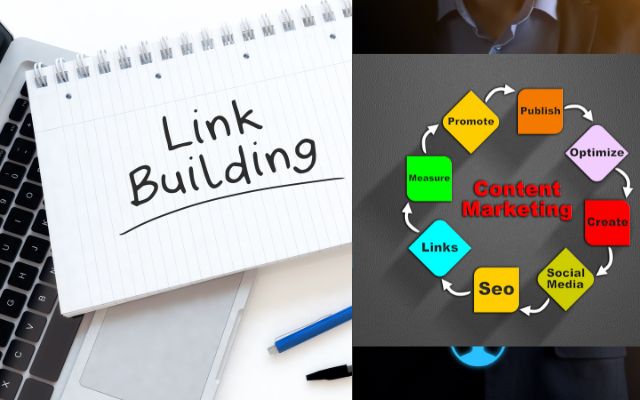Can Link Building Give You or Your Client a Bad Reputation?
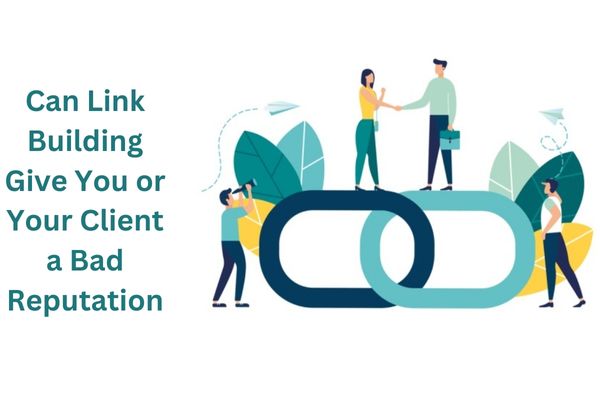
Can link building, if executed improperly, potentially tarnish your or your client’s reputation? Can Link Building Give You or Your Client a Bad Reputation: Link building has long been a popular strategy in search engine optimization (SEO) to improve a website’s visibility and ranking in search engine results. However, like any strategy, there are both positive and negative aspects associated with link building. One of the potential downsides is the risk of developing a bad reputation, either for yourself or your client. This article explores the potential pitfalls of link building and its impact on reputation, emphasizing the importance of ethical practices and long-term considerations.
How Link Building Can Impact Your Reputation
Understanding Link Building
Link building is the process of acquiring hyperlinks from external websites that direct users to your own website. These links act as votes of confidence, indicating to search engines that your content is valuable and trustworthy. When done correctly, link building can enhance your website’s authority, increase organic traffic, and boost search rankings. However, not all link building techniques are created equal.
Unethical Link Building Practices
Some link building practices have earned a negative reputation due to their manipulative nature and disregard for search engine guidelines. These unethical practices include:
a. Paid Links: Purchasing links solely for the purpose of boosting rankings violates search engine guidelines and can lead to severe penalties.
b. Link Farms: Joining or participating in link farms, which are networks of websites created for the sole purpose of exchanging links, can be detrimental to your reputation. These networks are considered spammy and can lead to search engine penalties.
c. Irrelevant or Low-Quality Links: Placing links on websites that are irrelevant to your industry or have low authority can raise suspicions about your intentions, potentially damaging your reputation.
Negative Impact on Relevance and User Experience
Implementing a link building strategy without considering the relevance and quality of the linking websites can have negative consequences. If users encounter your website through unrelated or low-quality links, they may perceive your content as irrelevant or untrustworthy. This can result in a higher bounce rate, decreased user engagement, and ultimately harm your reputation among your target audience.
Algorithmic Penalties and Search Engine Trust
Search engines continuously update their algorithms to provide users with the most relevant and trustworthy results. Engaging in manipulative link building practices can trigger algorithmic penalties that directly impact your website’s visibility. Moreover, search engines prioritize user experience and satisfaction, and any practices that undermine these principles can erode their trust in your website.
Maintaining a Positive Reputation
To avoid damaging your reputation and that of your clients, it is essential to adopt ethical link building practices:
a. Focus on Quality: Instead of aiming for a high quantity of links, prioritize acquiring links from reputable and authoritative websites relevant to your industry.
b. Natural Link Building: Develop high-quality content that naturally attracts links from other websites due to its value, uniqueness, and usefulness.
c. Relationship Building: Build genuine relationships with influencers, bloggers, and industry experts who can provide legitimate backlinks to your website.
d. Guest Blogging: Contribute valuable content to reputable websites in your industry, including a link back to your website, while adhering to their guidelines.
e. Content Marketing: Create exceptional content that users find valuable, shareable, and link-worthy, increasing the chances of earning organic backlinks.
FAQ
Q: Can Link Building Give You or Your Client a Bad Reputation
A: Link building, if conducted unethically or without careful consideration, can indeed result in a negative reputation for both you and your clients.
Q: Can link building have a negative impact on my or my client’s reputation?
A: Yes, link building can potentially harm your or your client’s reputation if done improperly or through unethical practices. Engaging in manipulative tactics such as purchasing links, participating in link farms, or obtaining irrelevant and low-quality links can raise concerns about the credibility and integrity of your website. This can result in search engine penalties, decreased user trust, and a negative perception within your industry.
Q: What are some ethical link building practices to protect reputation?
A: To maintain a positive reputation while engaging in link building, consider the following ethical practices:
- Focus on quality over quantity: Seek links from reputable and authoritative websites relevant to your industry.
- Natural link acquisition: Create high-quality, valuable content that naturally attracts organic backlinks from other websites.
- Build genuine relationships: Establish connections with influencers, bloggers, and industry experts who can provide legitimate backlinks based on mutual trust and collaboration.
- Guest blogging: Contribute valuable content to reputable websites in your niche, following their guidelines and including relevant links back to your website.
- Content marketing: Produce exceptional content that resonates with your target audience, making it more shareable and likely to earn organic backlinks.
By adopting these ethical strategies, you can safeguard your reputation and establish a trustworthy online presence.
Q: What are the risks of engaging in unethical link building practices?
A: Engaging in unethical link building practices can have several risks and consequences:
- Penalties from search engines: Search engines like Google have strict guidelines against manipulative link building practices. Violating these guidelines can result in algorithmic penalties, leading to a significant drop in search rankings and visibility.
- Damage to credibility: Unethical practices can damage your or your client’s credibility and reputation. Users may perceive your website as untrustworthy or irrelevant if it is associated with spammy or low-quality links.
- Negative user experience: Placing links on irrelevant or low-quality websites can negatively impact user experience. Users who encounter your website through such links may have a poor impression, leading to higher bounce rates and reduced engagement.
- Industry backlash: Engaging in unethical practices can result in backlash from industry peers and competitors, tarnishing your professional reputation and potentially affecting business relationships.
It is important to prioritize ethical link building practices to avoid these risks and maintain a positive reputation in the long term.
Q: How can I protect my reputation while implementing a link building strategy?
A: To protect your reputation during link building, consider the following steps:
- Educate yourself: Stay updated on the latest industry best practices and search engine guidelines regarding link building. Understanding what is considered ethical will help you make informed decisions.
- Conduct thorough research: Before obtaining links, evaluate the relevance, quality, and authority of the websites you plan to associate with. Ensure they align with your brand values and audience expectations.
- Be transparent: Clearly disclose any partnerships, sponsored content, or compensated links to maintain transparency with users and search engines.
- Monitor your backlink profile: Regularly monitor your backlinks to identify any suspicious or low-quality links. Disavow any harmful links that could potentially harm your reputation.
- Prioritize value and relevance: Focus on creating high-quality, valuable content that naturally attracts organic backlinks from authoritative sources. By providing genuine value, you can enhance your reputation and attract organic link opportunities.
- Coupon Link Building for Ecommerce: A Step-by-Step Guide
- Understanding Internal Linking for SEO
- Building Stronger Connections: A Comprehensive Guide to Resource Link Building Strategies
- Unlocking the Power of Guest Blogging: Strategies and Tips for Building Your Online Presence
- The Art of Link Building: Strategies and Techniques for Success
- Reaching New Heights: A Comprehensive Guide to the Skyscraper Technique in Link Building
- Rebuilding the Chain: An In-Depth Guide to Broken Link Building for Improved SEO
- Dark Side of Link Building: Protect Your Rankings and Maximize Your SEO Success
- Shallow Link Building: Boosting Your Website’s Authority and Visibility
Conclusion
While link building remains an integral part of SEO, it is crucial to approach it with caution to prevent any negative impact on your or your client’s reputation. Employing ethical practices, focusing on quality over quantity, and considering long-term results are essential to building a positive online reputation. By aligning your link building efforts with search engine guidelines and user expectations, you can enhance your visibility, credibility, and reputation in the digital landscape.


